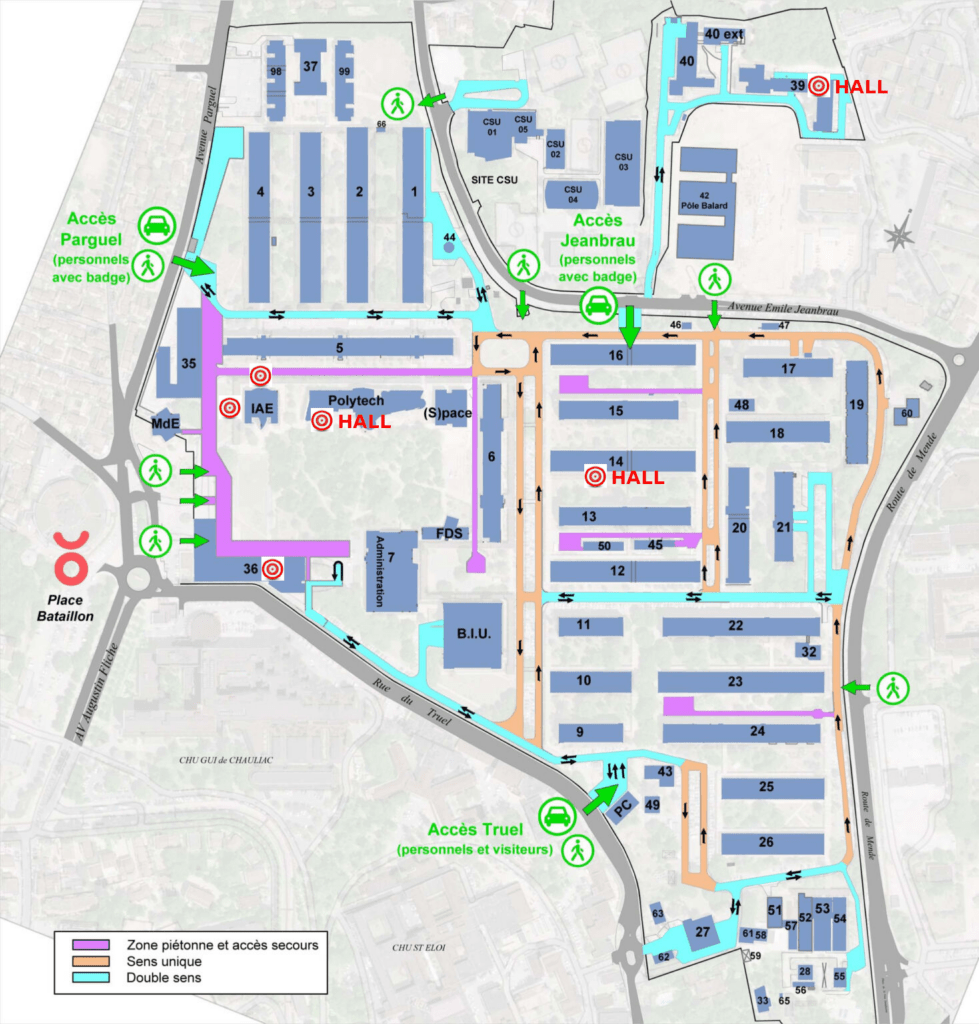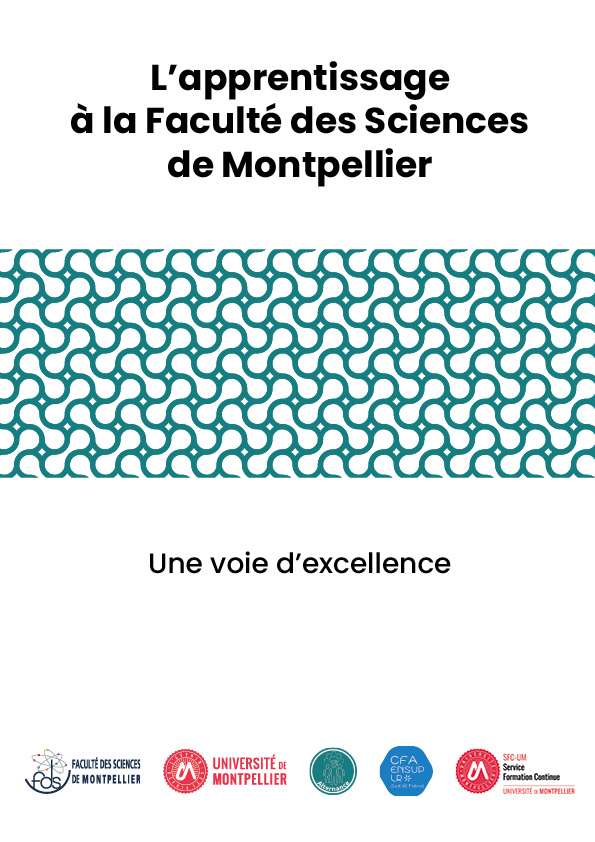Apprenticeship contract
Apprenticeship is based on the principle of alternating theoretical instruction at the apprentice training center (CFA) with on-the-job training with the employer with whom the apprentice has signed a contract. Apprenticeship regulations are governed by the provisions of the French Labor Code (Book II, Part 6).
Frequently asked questions
Apprenticeship and professional training contracts: what are the differences?
The apprenticeship contract is a fully-fledged initial training scheme, enabling young people to acquire, under a specific employment contract, a technical or vocational diploma or qualification registered with the French National Register of Vocational Certifications (RNCP). It is open to young people aged 16 to 29.
The apprenticeship contract is designed to enable young people to acquire a qualification recognized by a professional branch or registered with the RNCP, with a view to rapid professional integration. It can be used by people over the age of 26.
The legislative and legal framework differs between the two types of contract: target audience, employer authorization, formalities linked to the contract, conditions and duration of the contract, remuneration of the young person, benefits granted to the employer, financing of training, succession of contracts.
What are the requirements for apprenticeships?
There are 4 of them:
- Must be over 16 and under 30 (no age limit for certain exceptions),
- Meet the entry requirements for the desired course,
- Sign an apprenticeship contract with an employer, after checking that the job offered is in line with the requirements of the diploma or qualification in question,
- The requested training must have enough places to accommodate the apprentice.
Does apprenticeship training cost anything?
No, this isa free, paidtraining program for alternating work-study students, since they are salaried employees.
How much do I get paid?
| Apprentice's age | 1st year | 2nd year | 3rd year |
| Under 18s | 27% of minimum wage | 39% of minimum wage | 55% of minimum wage |
| From 18 to 20 years old | 43% of minimum wage | 51% of minimum wage | 67% of minimum wage |
| From 21 to 25 years old | 53% of minimum wage | 61% of minimum wage | 78% of minimum wage |
| Over 26 | 100% of minimum wage | 100% of minimum wage | 100% of minimum wage |
How does apprenticeship work?
Apprenticeship is based on the principle of alternating academic and practical training at the training center with the acquisition of know-how at an employer's.
The rhythm of this alternation varies according to the course taken, but respects a timetable established in advance.
The apprenticeship contract is a special employment contract that enables students to benefit from a dual status: student and full employee of the company.
Which employers can I sign an apprenticeship contract with?
Apprenticeships can be taken out with any type of employer, whether private, public or non-profit:
Private-sector employers established or domiciled in France (metropolitan France and overseas departments),
=> State, regional and hospital civil service establishments,
=> Public industrial and commercial establishments (EPIC),
=> Temporary employment agencies,
=> Associations Loi 1901,
=> Employers' groups,
=> Liberal professions.
How do I find an employer?
Finding an employer is a key step for future apprentices, as it positions them from the outset as players in their own training path. It is carried out using the same avenues as those for a conventional job search: consulting job offers, dedicated forums and trade shows, the Internet, the press, Pôle Emploi, canvassing and making unsolicited applications to companies, activating one's network of contacts...
The quality of CV and cover letter writing, good preparation for the job interview and solid motivation will increase your chances of success.
The search for an employer can ideally begin as early as March for a course starting in September.
Although it is preferable for candidates to take a proactive approach and find their host company themselves, the CFA EnSup-LR development department can advise or help you in this process, in particular by assisting you in the construction of relevant application tools (CV, cover letters).
Workshops on company search strategies and techniques are organized by the CFA.
When do you become an apprentice?
The young person acquires apprentice status when he or she signs the apprenticeship contract with the company. He or she becomes a full-fledged employee of the company, benefiting from the provisions applicable to all employees. Teaching time is included in working hours.
What are the rights and duties of an apprentice?
Apprentices are subject to the same working conditions as other employees of the company or administration. The legal working week is 35 hours. Apprentices are also entitled to paid vacations, calculated in the same way as other employees of the company or administration.Depending on the collective agreement, branch or company agreements, apprentices may, like other employees, benefit from social advantages such as a 13th month's pay, a health insurance scheme, luncheon vouchers, etc.Finally, under the apprenticeship contract, apprentices contribute to pension and unemployment schemes.
What to do in case of absence
Absences, whether during class or on the job, must be justified. Only authorized absences (e.g. illness, family event) will be accepted by the CFA.
To find out more
Does the diploma obtained in this way have the same "value" as one obtained by conventional means?
Absolutely. The training program and academic exams are the same for all students, whether apprentices or not.
Apprenticeship training requires a high level of personal investment and motivation. But the added value of an apprenticeship diploma compared to a conventional diploma is the acquisition of concrete professional experience, a real passport to employment and rapid, successful integration into the world of work. Apprenticeships also enable you to develop skills in organization and autonomy,
What diplomas can I prepare for as an apprentice?
Apprenticeships are available at all levels of training. The young person must first meet the admission requirements for the chosen course, in the same way as a traditional student.
When does training start?
Courses follow the same academic calendar as non-work-study courses, generally starting between September and November of each year, and finishing between May and August.
An apprenticeship contract may be signed for a period of 3 months after the start date of the training program.
Is the work-study program the same for all courses?
No, this rhythm can vary depending on the course.
It's important to find out in advance about the work-study schedule, which can be a decisive factor for a future employer.
Consult calendars
What support is there for the apprentice?
The CFA has set up a digital work-study booklet: STUDEA. STUDEA is a web-based tool for tracking apprentices throughout the life of their contract. Its purpose is to provide a link between the apprentice, the academic tutor and the apprenticeship master. It is both a meeting place and an exchange and memory tool.
In particular, it can be used to check the apprentice's attendance in class, exchange documents and complete questionnaires (installation minutes, assessment form, reports, observations, etc.).
How can I prove my attendance?
The apprentice must meet the attendance control requirements set up for each training course (clocking in and out or signature on a sign-in sheet).
To do so, they must swipe their student card, issued by the FdS at the time of registration, on the badge machines provided on campus.
Time-clock layout (see image below)
Attendance sheets, based on the CFA model, are also available to teaching teams in the following cases:
- If the pointing device/badge is faulty ;
- If the apprentice is attending classes at another training location not equipped with a badge reader, or outside the training location in the event of travel organized by the training program;
Attendance sheets countersigned by the teacher must be imported by the apprentice into his digital work-study logbook (STUDEA).
Map of Badgeholders on campus

Business Search Strategies and Techniques Workshop
The CFA organizes a workshop on company search strategies and techniques.
Prepare effective application tools to secure an apprenticeship contract.
Program:
- Reminder of the terms of the apprenticeship contract;
- How to organize your job search
- Presentation of the job market
- How and where to find information
- Monitoring your job search
- Preparing application tools
- CV
- Cover letter
- Job interview
I badge on
the campus to justify my presence!
Click on the map (right) to find out where the time clocks are located.
Testimonials from our apprenticeship students
Sémy, CDPI work-study student
A range of guides and documents to help you better understand learning

University apprentice?
The UM is committed to apprenticeships!
More than 180 courses open to apprentices, & 2,600 apprentices trained by 2021-2022!
Take your BUT, Licence Pro, Master or Diplôme d'Ingénieur as an apprenticeship.

